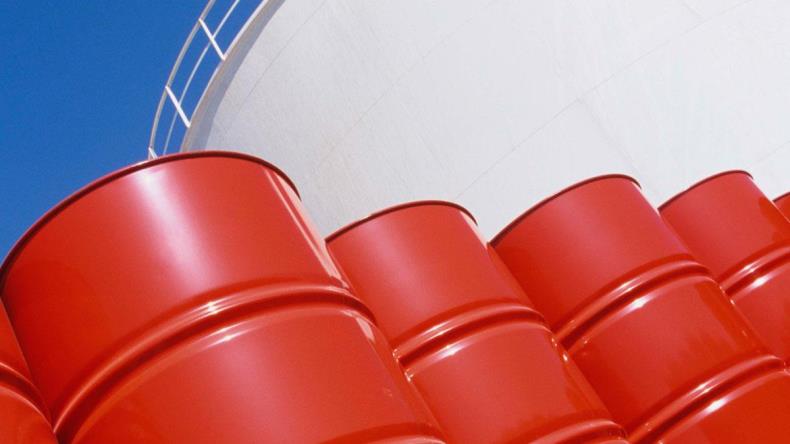Genel Energy plc has updated its oil reserves and resources across its portfolio.
Bill Higgs (pictured), Chief Executive of Genel, said:
“Genel’s producing assets are profitable even at an oil price of $30/bbl and this, coupled with our robust balance sheet, supports investment in growth and the payment of a material dividend. The reduction of reserves at Tawke largely relates to production towards the end of the life of the field, and consequently our mid-term production outlook is materially unchanged and there is no reserves impact on our business plan.
“Our production funds an approved but flexible capital programme that, in the right market conditions, enables us to drill the wells necessary to evaluate the potential to convert the 2C oil resources in our portfolio, validated for the first time by ERCE, into reserves and production, boosting our cash generation potential.“
| Net oil reserves (MMbbls) |
1P |
2P |
3P |
| 31 December 2018 |
99.3 |
154.9 |
219.3 |
| Production |
(13.2) |
(13.2) |
(13.2) |
| Technical revisions |
(17.2) |
(17.8) |
(11.2) |
| 31 December 2019 |
68.8 |
123.8 |
194.9 |
International petroleum consultants DeGolyer and MacNaughton assess that on a gross basis, at the Tawke licence in the Kurdistan Region of Iraq containing the Tawke and Peshkabir fields, year-end 2019 1P reserves stood at 228 MMbbls, compared to 348 MMbbls at year-end 2018, after adjusting for production of 45 MMbbls and a downward technical revision of 75 MMbbls. Tawke licence 2P reserves stood at 400 MMbbls (502 MMbbls in 2018) and 3P reserves at 641 MMbbls (697 MMbbls in 2018).
Broken down by field, Tawke field gross 1P reserves stood at 176 MMbbls (294 MMbbls in 2018), 2P reserves at 284 MMbbls (376 MMbbls in 2018) and 3P reserves at 421 MMbbls (477 MMbbls in 2018). Peshkabir field gross 1P reserves stood 51 MMbbls (54 MMbbls in 2018), 2P reserves at 116 MMbbls (126 MMbbls in 2018) and 3P reserves at 220 MMbbls (unchanged from 2018).
Genel continues to take a conservative view of the Enhanced Oil Recovery project at the Tawke PSC, and will look to book reserves in relation to the project, which has the potential to increase recovery over the life of field, once enhanced performance has been demonstrated at the field.DeGolyer and MacNaughton has included23MMbbls of 2P and 45 MMbbls of 3P gross reserves, working interest portions of which are not included in the table above.
At Taq Taq, there is a minor technical downward revision of 2.1 MMbbls of gross 2P reserves associated with the unsuccessful TT-33 well, and these now total 44 MMbbls, with gross 1P reserves increasing by 3.3 MMbbls to 20.1 MMbbls, illustrating the continued strong underlying performance of the asset. McDaniel & Associates carried out the independent assessment of the Taq Taq licence.
Genel’s gross 2P reserves estimate relating to Phase 1A of the Sarta development remains 34.3 MMbbls.
CONVERTING RESOURCES TO RESERVES
| Net oil resources (MMbbls) |
1C |
2C |
3C |
| 31 December 2018 |
36.8 |
73.7 |
121.3 |
| Technical revisions |
29.7 |
78.3 |
224.5 |
| 31 December 2019 |
66.5 |
152 |
345.8 |
Following completion of the acquisition in 2019, Genel estimated gross resources at Sarta to be c.500 MMbbls. This potential has now been validated through an external audit conducted by ERCE, who has estimated a mid-case total recoverable oil resource of 593 MMbbls, of which 264 MMbbls is classified as 2C resource. Production performance in 2020, and the results of the upcoming three well campaign in 2021, will set out a roadmap for the conversion of these resources into reserves.
The Bina Bawi oil development has been certified by ERCE as 17.1 MMbbls of 2C resources, 13.6 MMbbls of which are expected to be converted into 2P reserves should a commercial agreement be reached and FID be taken on the first phase of the oil project.
At Qara Dagh the QD-2 well will test the crestal portion of the prospect which, based on a rigorous re-mapping exercise, has a mean prospective resource estimated by Genel at c.400 MMbbls. Genel estimates that the downdip segment tested by the QD-1 well defines a 2C resource of 47 MMbbls.
(Source: Genel)

